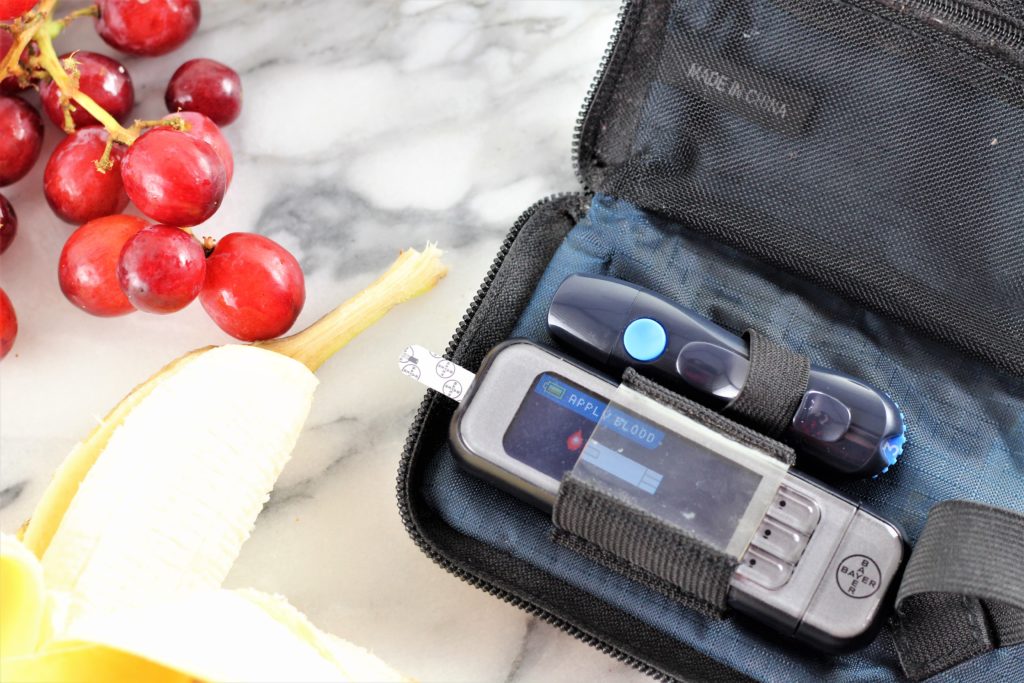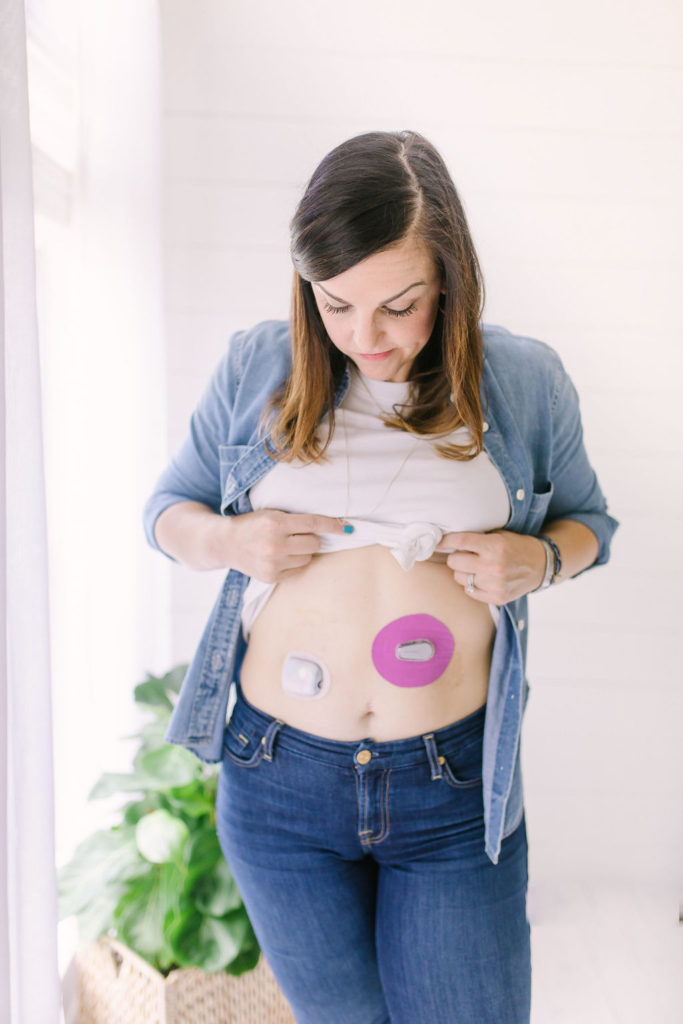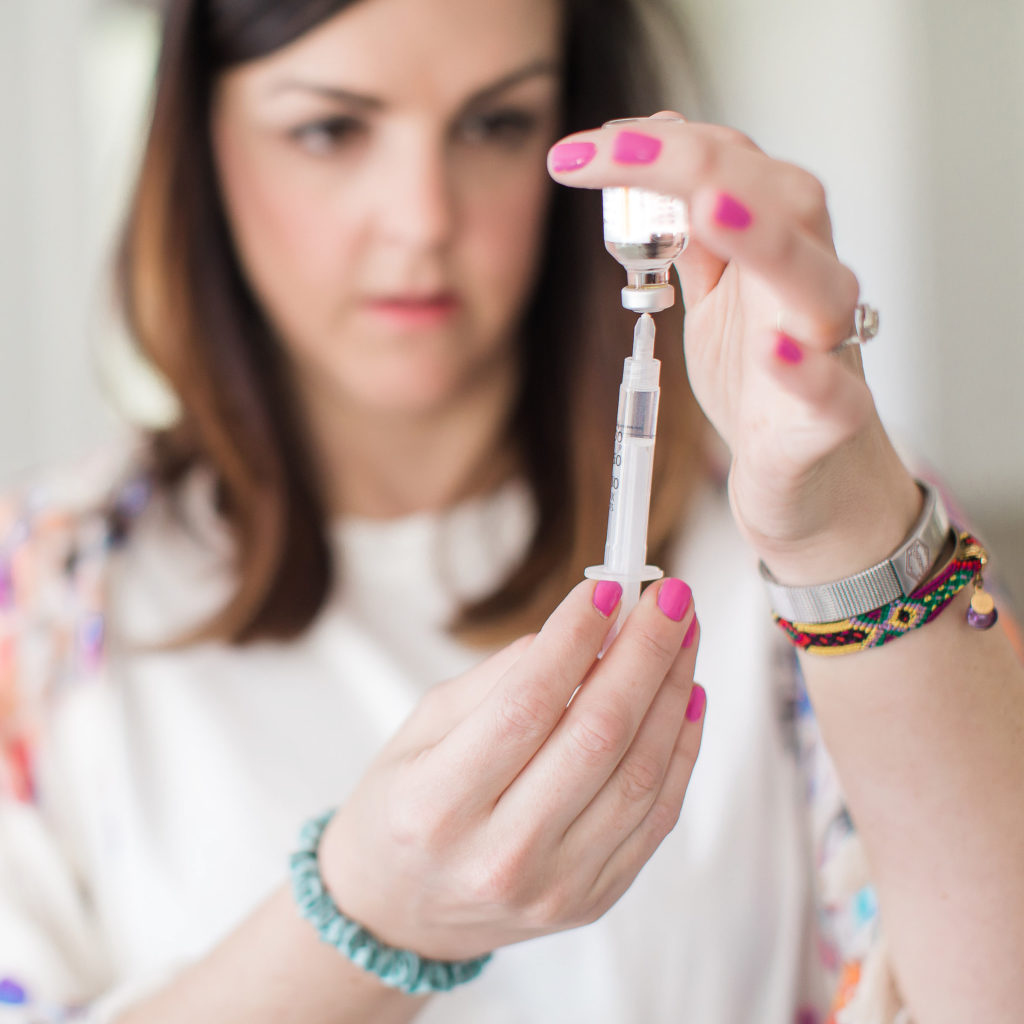
Physical, mental, and emotional stress and diabetes are all related, and it’s important to understand how stress can impact blood glucose levels.
Whether it’s an in the moment intense physical stressor, a stressful experience at work, or getting sick, all forms of stress can impact people with diabetes. Stress and diabetes are related, and it’s important to understand how stress levels impact blood sugars, and how to be prepared.
***This article is not intended to provide medical advice, diagnosis, opinion, treatment or services. This article and the links contained in it provide general information for educational purposes only. The information provided in this article is not a substitute for medical care, and should not be used in place of the advice of your physician or registered dietitian.

What is the fight or flight response?
In times of stress or illness, many hormones are released into the bloodstream that can affect the glucose level in your bloodstream. The stress response is often called a “fight-or-flight” response because it is a survival mechanism for a quick reaction to a stressful event.
As an example, imagine you are walking to your favorite restaurant and you need to cross the street. You look both ways and begin to walk. Out of nowhere, you see a car racing toward you honking their horn. The sound of the horn blaring and the site of a car coming toward you at full speed sends a response to your brain that you are in danger.
Fight or flight and diabetes
The incident described above causes a surge of hormones (such as cortisol, epinephrine, and norepinephrine). These hormones cause the heart to beat faster, an increase in blood pressure, heavy breathing, and a release of glucose into the blood.
The epinephrine now in your bloodstream causes your body to release some of it’s stored up energy… so that you can use it for whatever stressful event is happening in the moment. This means, fat is released from fat tissues, while something called ‘glycogen’ is released from your muscles and liver. These two stored up energy sources (fat and glycogen) go through a process called “gluconeogenesis”.
To put it more clearly, this means your body’s fat stores and muscles release compounds that your body is able to convert into glucose. Your body can then use that glucose as energy to face whatever stressful event is happening.
And since the body’s stress response involves glucose, you may be starting to see why stress and diabetes are related.

Stress and high blood sugars
Thus, this does increase the level of glucose in the blood, often above normal levels which can cause hyperglycemia in people who have diabetes. In a situation when fighting or fleeing is necessary this is a very helpful mechanism, but in modern times it is often not needed.
Think about our example above, you would probably just step out of the way, wait for the car to pass, and make your way to the restaurant.
These types of events can happen during a frightening event like a dog chasing you, during a stressful event like traffic, and when you get sick. For people without diabetes, this is not an issue. The pancreas will produce more insulin to allow glucose to enter into the cells and lower the glucose levels back to normal. For people living with diabetes reducing glucose levels back to normal is more complicated.
Stress and type 1 diabetes
For patients living with type 1 diabetes, the pancreas cannot produce insulin to reduce glucose in the bloodstream. This can lead to prolonged high blood sugar levels unless an outside source of insulin is introduced. If the increased glucose from the stress response goes untreated a person with type 1 diabetes has a possibility of entering diabetic ketoacidosis (DKA).
DKA happens when glucose levels are high, but the body’s cells are unable to use it for energy due to the lack of insulin. Instead, the liver begins to break down fat for energy. When fat is broken down there is a byproduct produced called ketones. These high levels of ketones make the blood more acidic and can cause patients to lose consciousness and go into a diabetic coma.

Stress and type 2 diabetes
It is a little different for people living with type 2 diabetes with insulin resistance. The pancreas can still secrete enough insulin to allow some glucose to be used for energy in the body’s cells. This lessens the need for fat to be broken down for energy. This is why DKA is not common in people living with type 2 diabetes.
Although DKA is not common, another condition can develop for people living with type 2 diabetes called non-ketotic hyperosmolar hyperglycemia (NKHH). NKHH is characterized by life-threatening dehydration. The body is trying to rid itself of the increased glucose by excreting it in urine. NKHH is normally a result of illness or infection.
Stress hormones and diabetes and how to cope
Given the serious effects of increased glucose in the bloodstream, stress and diabetes and illness should not be taken lightly for people living with any type of diabetes. During stressful situations and times of illness, managing blood sugars can be increasingly difficult. Testing glucose levels during this time becomes extremely important to prevent DKA and NKHH.
In times of prolonged stress (like at a job, or with family) making a plan to help cope can assist in reducing the stress response we described above. Certain activities that might help are:
- Talking to someone about what is causing the stress
- Physical activities
- Practicing your favorite hobby

Everyone has different ways to cope with stress and relax. It’s important to find something that works for you to do during stressful times.
To give you a personal example, I’ll tell you a story of when I was fresh out of graduate school and a baby dietitian working in an endocrinology clinic as a diabetes educator…
I worked in a very fast-paced clinic. One day, the physician that I was working under became upset about how I was doing my job (that’s a story for a whole other day though about the one and only time I truly felt discriminated against because I had diabetes…)
… long story short I found myself extremely stressed out and scared to go to work. I am a recovering people pleaser with perfectionist tendencies and the thought of my superior not being pleased with my work was very distressing to me. Nothing physical had happened to me… just extreme emotional stress. And, I saw my blood sugars skyrocket over the next several days. It seemed no matter how much insulin I took, I couldn’t get my blood sugars to come down under 200 mg/dL. So I took a few days off work, plus a few weekend days, and finally after about 4-5 days they started to come back down to normal levels and I was able to go back to taking the normal amount of insulin that I was used to every day. (I have also since learned how to better handle workplace criticism and stress 🙂
I’m thankful I was able to temporarily remove myself form the situation.
This was a textbook example of stress and diabetes interacting. I experienced emotional stress along with a physical side effect of that stress.
Stress, sickness, and diabetes
There are many things to consider with stress and diabetes, especially when that stress comes in the form of getting sick. A sick-day kit is a good idea to keep all the things that help manage glucose levels in one spot. This kit should include:
- Glucose tablets (or your preferred low blood sugar treatment)
- A thermometer
- Blood sugar testing supplies
For people living with type 1 diabetes, additional things to add to your kit include:
- keto-stix to test for ketones in the blood or urine
- Insulin and syringes
- A glucagon kit

It is important to continue taking medications for lowering blood sugar during these times. If additional over the counter medications are necessary for easing the symptoms of illness be sure to talk with your pharmacist or doctor. Many over the counter medications have added sugars that will increase glucose levels or may interact with other medications you are currently taking.
A lot of things affect glucose levels making managing diabetes difficult. All kinds of stress (mental, physical, and emotional) can cause glucose levels to skyrocket and can be dangerous. Everyone’s stress and diabetes response can be a little different. Listening to your body and the way it feels can be the first sign of a serious condition needing medical attention.
And if you’re looking for a way to reduce stress levels in the kitchen, make sure to order a copy of my cookbook The Easy Diabetes Cookbook!







One Response
Thank you so much for this article. I’ve been following you on TikTok for awhile and always enjoy your posts. I was diagnosed as Type 2 almost 20 years ago, but after months of stress at work with learning a new position and chronic pain for over 6 months, my blood sugar spiked to 548. I ended up being hospitalized to get fluids and insulin. (I had not been on insulin before this)
Since then my doctor is saying maybe I’m a type 1-1/2… my body isn’t reacting to the meds as expected. He is referring me to an endocrinologist now to see what else to try.
The stress is non-stop between the chronic pain, Dexcom G7 alarm going off and the long hours at work. It really does help to understand how those stresses are affecting the blood sugars.